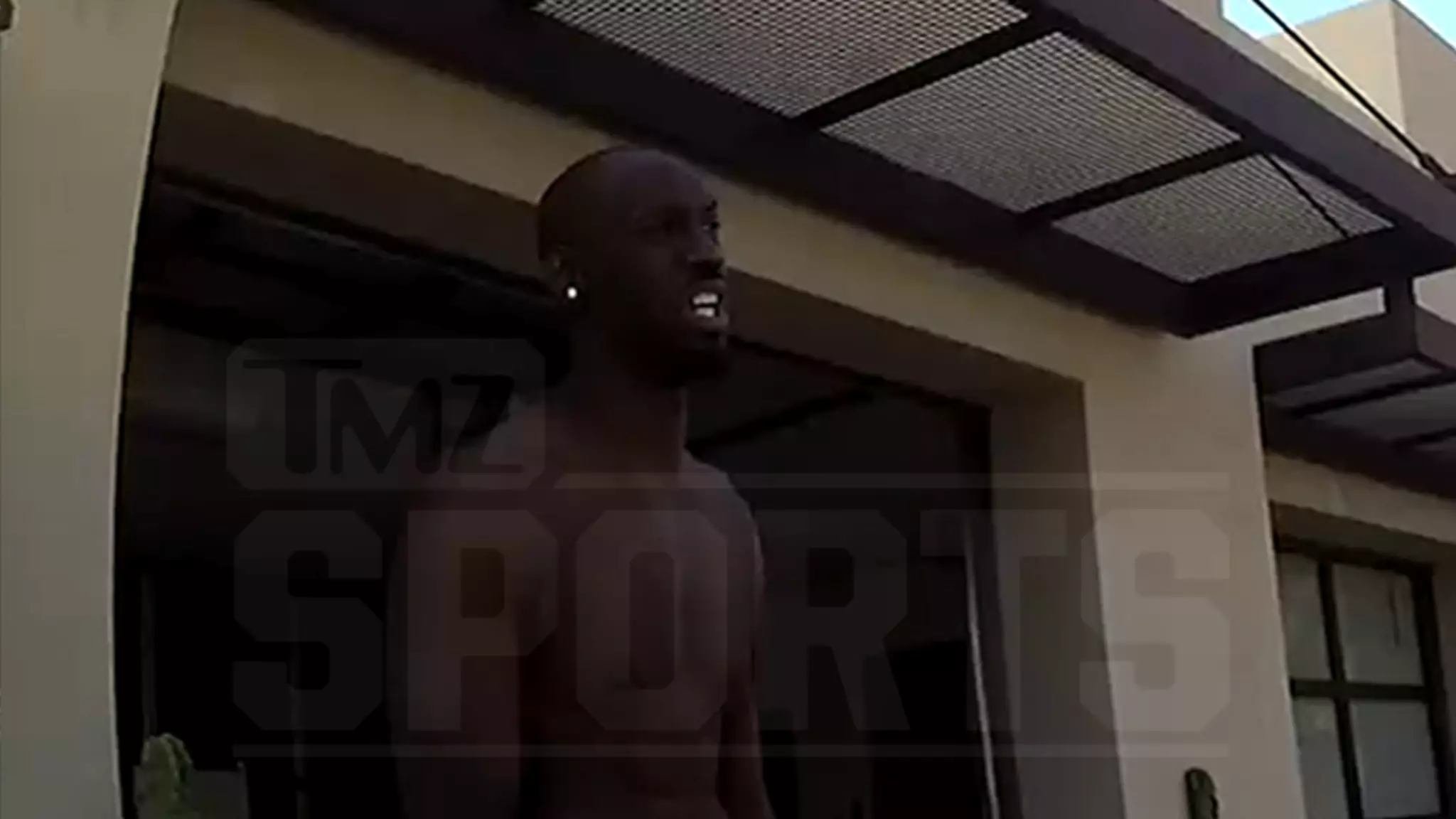In November 2023, former NFL player Chandler Jones found himself at the center of a harrowing encounter with law enforcement that highlights not only the athlete’s personal struggles but also broader issues related to mental health awareness in sports. The incident, captured on police body cameras and later shared by TMZ Sports, reveals the challenges Jones faced as he dealt with the aftermath of a court-ordered mental health evaluation. This situation not only raises questions surrounding his well-being but also calls for a deeper understanding of mental health issues among athletes.
Jones, a once-celebrated player with a significant legacy in the NFL, had recently been released by the Las Vegas Raiders, adding stress to an already complicated situation. His attempts to contact Tom Brady during this tense interaction suggests he recognized his need for support, illustrating that even the strongest individuals can struggle during difficult times. Brady, a fellow teammate during Jones’s tenure with the New England Patriots, symbolizes a connection to a more stable time in Jones’s life. However, the fact that he felt the need to reach out speaks volumes about the disarray he was experiencing.
On the day in question, police were dispatched to Jones’s residence following a mental health petition. The video footage offers a chaotic glimpse into what transpired, beginning with Jones’s apparent reluctance to engage with the officers. His initial appearance—dressed solely in his underwear and rambling about a female acquaintance accusing her pets of biting him—paints a stark picture of his mental state at that moment. The emotional turbulence he displayed, evidenced by his sobs and subsequent aggression, underscores the delicate intersection of mental health and law enforcement interactions.
When officers attempted to discuss the concerns surrounding his safety, Jones’s demeanor shifted dramatically. The contrast in his behavior—between moments of vulnerability and aggressive outbursts—raises significant questions about the resources and training available to law enforcement when dealing with individuals in crisis. The officers’ handling of the situation, although ultimately leading to necessary medical intervention, points to a requirement for more specialized training in mental health crisis management.
Chandler Jones’s saga serves as a poignant reminder that the pressures faced by professional athletes extend far beyond the field. The expectations to uphold a certain image, coupled with the abrupt shifts in life post-career, can culminate in overwhelming emotional distress. Mental health issues often remain stigmatized within the sports community, which can lead to isolation during times of need. Jones’s attempts to reach out to familiar faces in his time of crisis—first Brady, then eventually other contacts—illustrate a desperation for validation and assistance.
Another noticeable aspect of the encounter was his struggle with compliance. When faced with the prospect of going to a psychiatric facility, Jones resisted, indicating how challenging it can be for individuals dealing with mental health crises to recognize their need for help. His insistence on calling his brother, UFC star Jon Jones, demonstrates a desire for familial support but also highlights the isolating aspects of his mental health struggles—an internal battle that many can relate to but few understand.
Ultimately, authorities transported Chandler Jones to a psychiatric facility without further incident, a necessary action given the circumstances. This case serves as an urgent reminder of the critical need for robust support systems for athletes transitioning out of their competitive careers. Organizations must prioritize mental health, offering resources and open dialogues regarding emotional wellness.
The relevant question that arises from this incident is how the sports community can effectively advocate for and support players as they navigate life beyond their professional responsibilities. The story of Chandler Jones is not just about one man’s struggle; it’s emblematic of the silent battles that many athletes fight daily. It compels us all to engage in more profound conversations about mental health stigma and the urgent need for enhanced resources tailored to those who entertain us on the field.
In the end, it’s a stark lesson underscoring that behind athletic prowess lie human beings with vulnerabilities requiring understanding, compassion, and proper support mechanisms.

